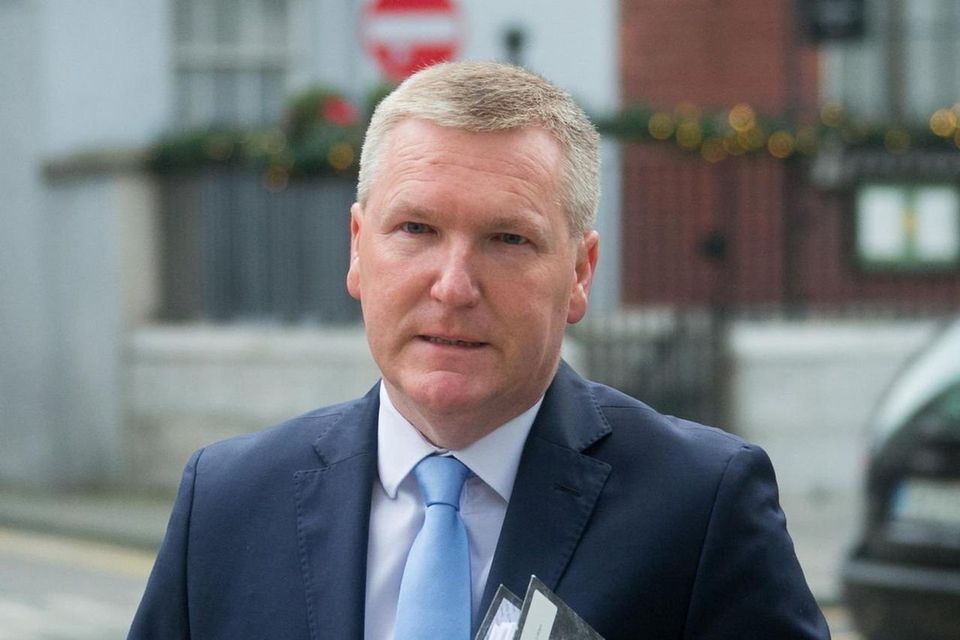The banks did not increase variable rates in line with ECB rate increases in 2022 and last year, so are predicted to be slow to cut rates in line with the ECB’s well-flagged decision. Experts believe current variable and fixed rate mortgage deals are as good as it is going to get for some time.
However, experience must surely have taught the banks that acting early is crucial to successfully solving mortgage difficulties.
Tens of thousands of people in Ireland are funding significantly increased mortgage payments since the beginning of the tightening cycle. The ECB has increased rates by a cumulative 4.5 percentage points up to September last year, which has contributed to significant profits for the banks, amounting to over €4bn last year alone here.
Finance Minister Michael McGrath.
The decision to cut rates was based on an updated assessment of the inflation outlook, the dynamics of underlying inflation and the strength of monetary policy transmission. Inflation in the euro area stood at 2.6pc in May, down from its peak of 10.6pc in late 2022.
The ECB forecasts euro area inflation is expected to average 2.5pc this year and has said any further cuts will continue to follow a data-dependent approach. This is appropriate.
However, a representative group of the banks in Ireland has said interest rates and the pricing of lending is a “commercial matter” for lenders in the market place. This is fine insofar as it goes — but it does not go far enough.
As the Finance Minister Michael McGrath has acknowledged, many households and firms have struggled with the effects of high inflation and the associated interest rate increases over the past two years.
In Ireland, inflation is notably less than the euro area average, with headline inflation here having fallen from its peak of 9.6pc in mid-2022 to 1.9pc in May.
Many have or will see a big increase in monthly mortgage bills
At the start of this month, around 70,000 homeowners here will have seen their fixed rates expire over the last year — the equivalent of about one in 10 residential mortgages.
As a consequence, many have or will see a big increase in monthly mortgage bills as the choice of interest rates open to them now is less attractive than the rate they were on.
For some borrowers, particularly those whose incomes have not risen much or have fallen since they took out their mortgage, there will be a greater risk of arrears — and a recently acknowledged increase in short-term mortgage arrears is evidence that this is already happening.
While the market has already priced a number of the expected ECB rate cuts into the current fixed-rate deals, it is important that banks factor the growing threat of arrears into decisions around when to cut rates here.
The Government must also strike the correct balance between providing supports to those still affected by the recent rise in prices here; ensuring it does not act to put inflation on an upward path again, but also being aware that many households still face cost-of-living pressures.






